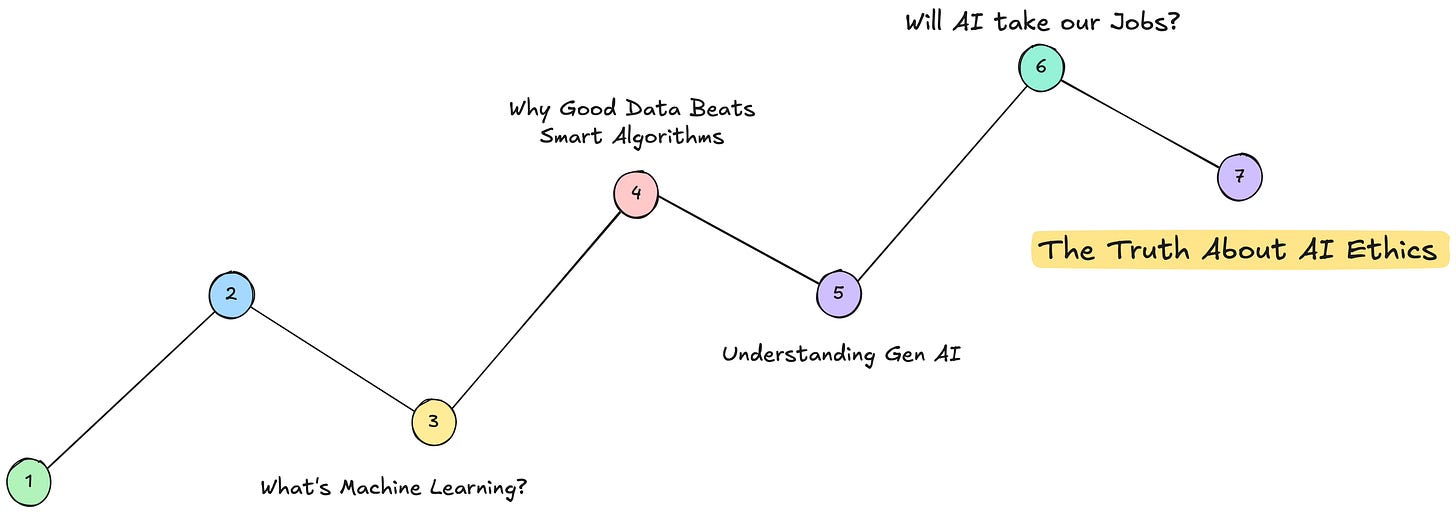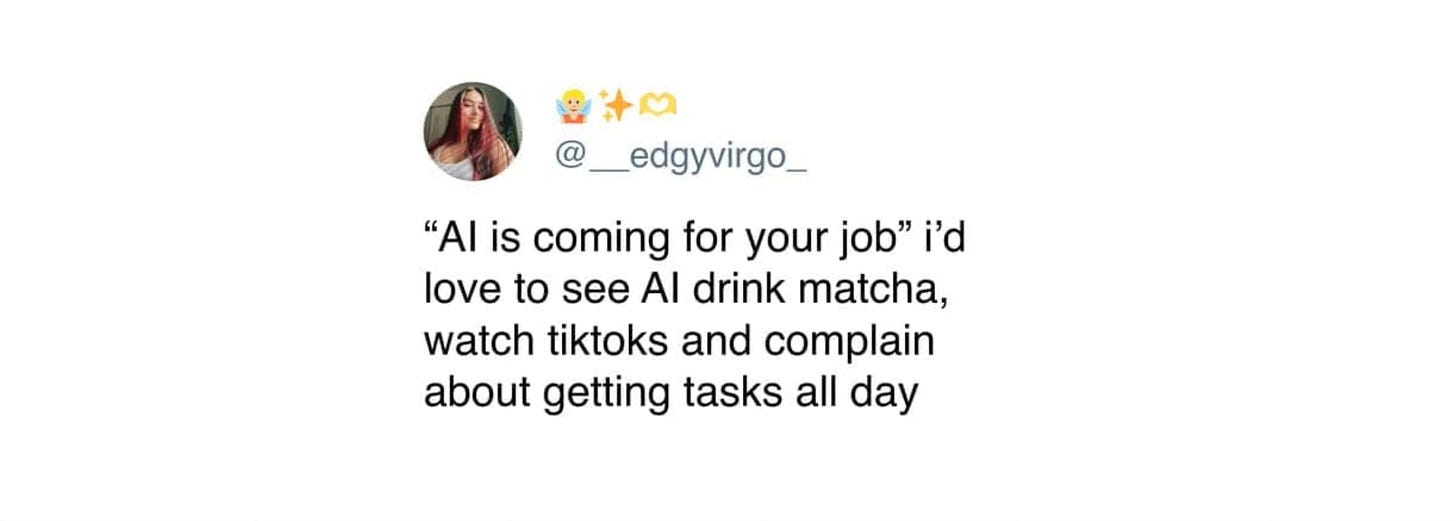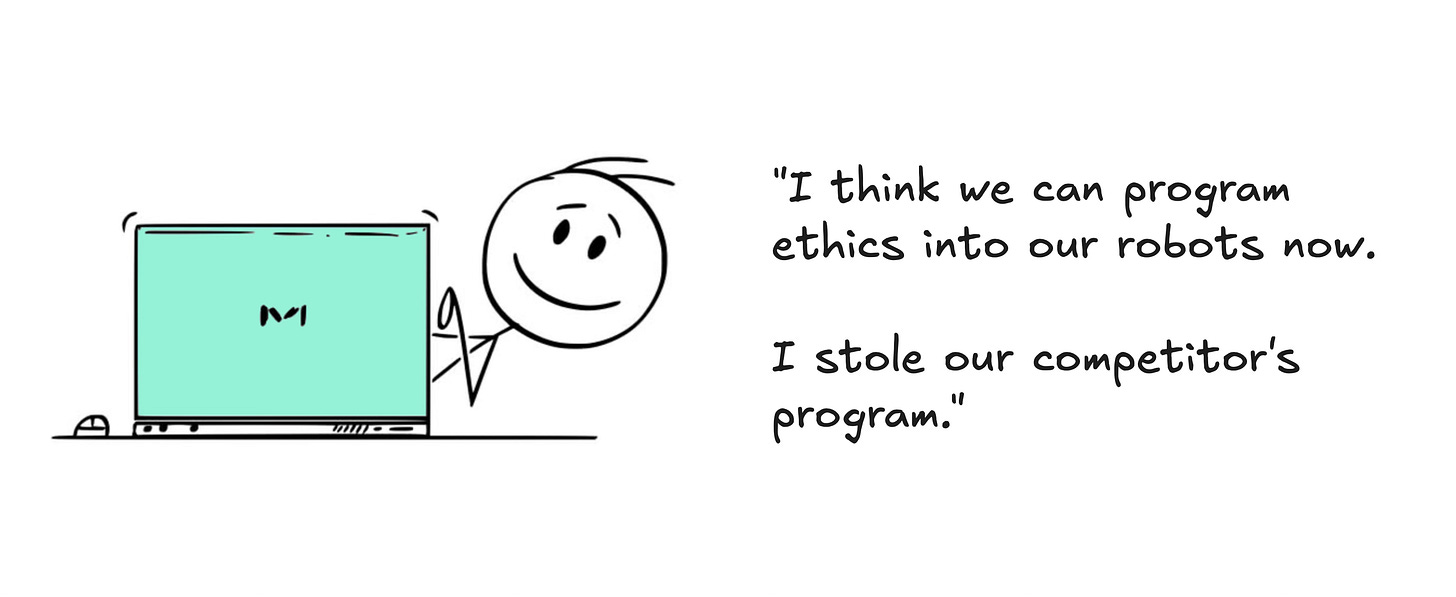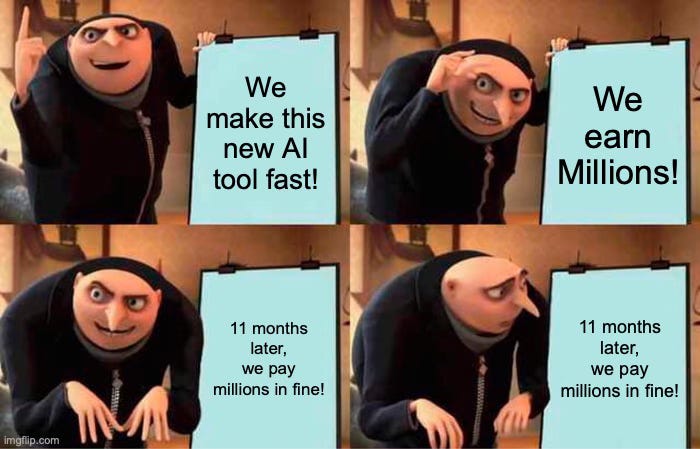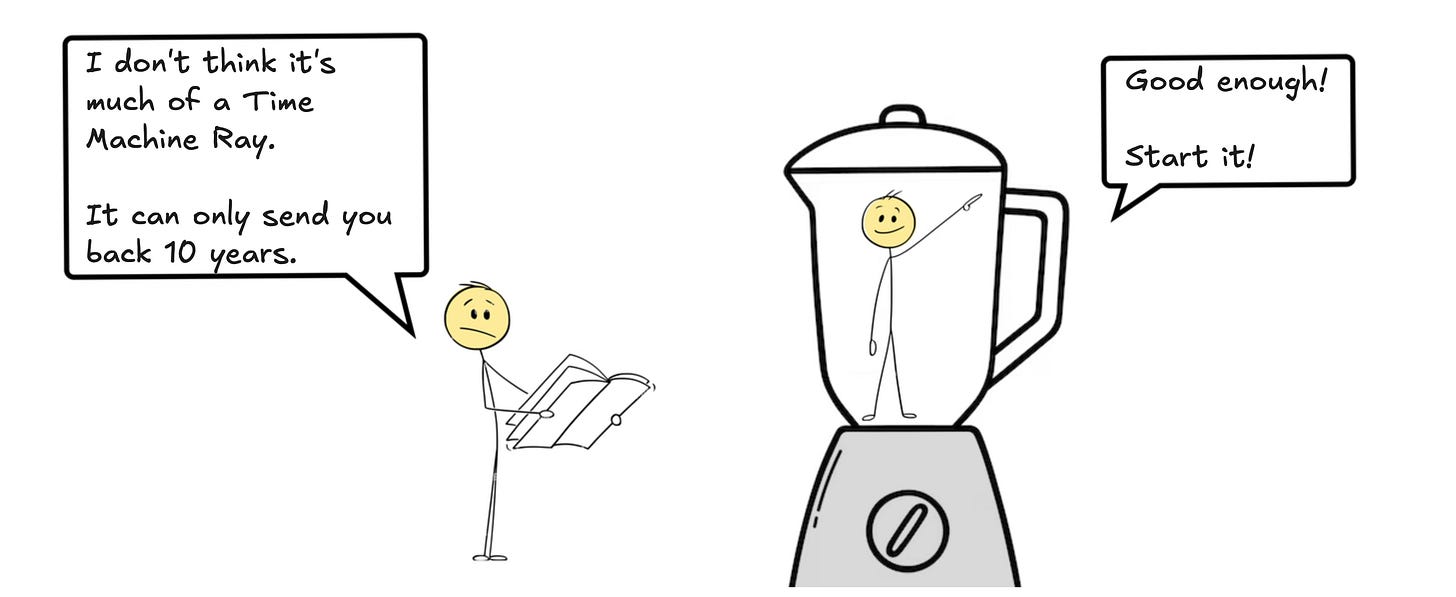Hello!
This is the final Newsletter in our AI fundamentals for CEOs newsletter.
Artificial Intelligence (AI) is in the news every day.
People say it will take our jobs,
And it’ll rule the world,
Or fix all our problems.
We often hear scary/exciting things and don’t know what to believe.
In this newsletter, I’ll talk about these myths and notions people have about AI.
I’ll try to separate what’s true and what is not.
This will help you, as a leader, make smart choices about using AI in your company.
Notion 1: "AI will replace humans"
People worry that AI will take everyone’s job.
That robots and machines will do all the work.
And we’’ll have nothing to do.
This sounds scary, but not true.
Of all the real world-examples we’ve seen, companies that use AI to help people, not replace them, always perform better than the rest.
For example:
General Motors and GE use AI with their workers.
AI helps with hard tasks (calculation, pattern recognition, prediction etc)
And people do the thinking and decision-making.
What should you do as a leader?
Think of AI as a teammate.
Let it do the boring or hard parts.
Let your people do the thinking, leading, and caring parts.
This way, everyone wins.
Notion 2: "Ethics slows down innovation"
Some people think that if you focus on ethics, you will be too slow.
They think rules and safety will stop the company from growing fast.
But that’s not only false. It’s funny.
Big companies like Microsoft and Salesforce use strong ethical rules with their AI.
And they are doing great.
They are growing and staying ahead of others.
Why? Because if you don’t think about ethics, you will make mistakes.
And those mistakes will cost you well.
→ A lot of money.
→ And a lot of trust.
Like an AI that treats customers unfairly. Or a product that breaks laws.
What should you do as a leader?
Build ethics into your work from day one.
It’s easier and cheaper to make AI safe from the start than to fix problems later.
Notion 3: "AI is neutral—it's just math"
Some think AI cannot be unfair.
They say it is just numbers and data.
But that is not how it works.
AI learns from data.
And if that data has bias, the AI will learn the bias too.
For example, if the data shows men getting more job offers, the AI might think only men should be hired.
This is not fair, and it can hurt people.
What should you do as a leader?
Check your AI systems often.
See how they make choices.
Make sure you have different kinds of people on your team.
Use fairness as something you measure and improve.
Resources of the week:
Notion 4: "We can worry about rules later"
Some leaders wait.
They think they can add rules later, after they build the AI.
But by then, it might be too late.
Laws about AI are already here.
In Europe, the AI Act is strong.
If you break rules, you may have to pay big fines.
And above that, It’s not just about the law.
It’s about trust.
Customers want to know you are careful and safe with AI.
What should you do as a leader?
Make a team that thinks about rules and safety now.
Ask:
What is the right thing to do?
What can go wrong?
How do we stop harm?
Notion 5: "AI needs to be super smart to be risky"
Many people think that only super-smart AI is dangerous.
Like robots that think like humans.
But the truth is, even simple AI can cause big problems.
For example, a basic AI that picks which loan to approve can hurt people if it learns unfair things.
It may say no to people who should get a loan.
And they don’t even know why!
Even small AI can cause big harm if not checked.
What should you do as a leader?
Don’t wait for super-smart AI to think about safety. Start now.
Every AI, big or small, needs rules, care, and checks.
Summing it Up
The truth is simple: Ethics and risk are not blockers.
They are part of good business.
They help you grow in the right way.
What to do now? Ask your team:
Are we using AI safely?
Are we being fair?
Are we thinking about people, not just tech?
Be the leader who builds AI that helps everyone.
It’s shouldn’t be just smart. It’s needs to be right.


